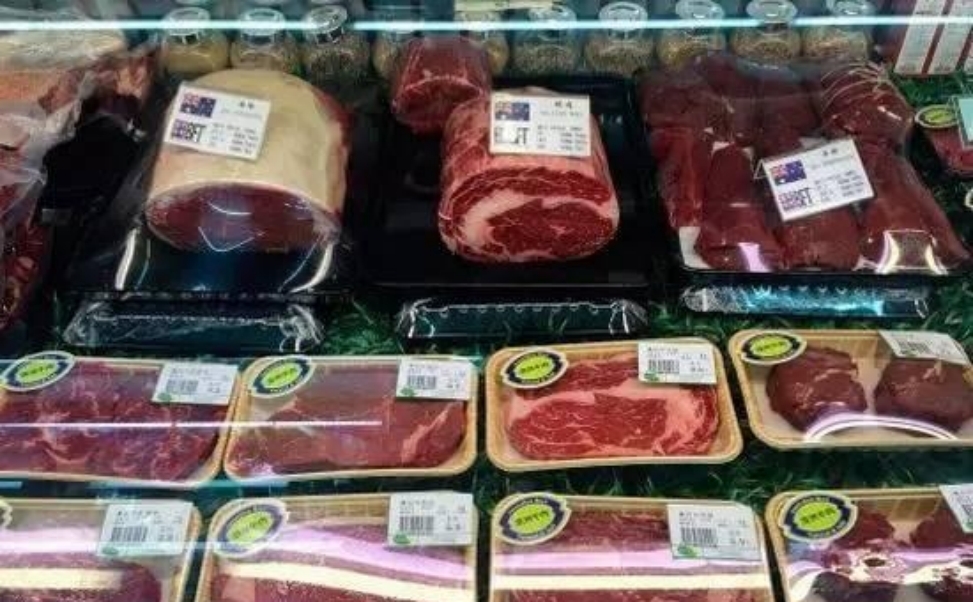
Recently, the price of beef in the United States has soared to $6.67 per pound, reaching a high point in over a decade. The family barbecue on Independence Day has become a microcosm of the cost burden, with an average cost of $7.09 per person per meal, and a family of 10 people spending more than $70. The price increase is attributed to the combined effects of an imbalance in the industrial chain structure, tight supply, premium in the retail sector and adjustments in international trade policies. The stock of cattle in the United States has dropped to its lowest level in 75 years, approximately 86.7 million heads. Drought has led to a reduction in forage production, prompting farms to sell their herds earlier and causing a supply crunch. The increase in agricultural subsidies, feed and transportation costs has driven the transmission of production costs to wholesale and retail. In addition, the United States has suspended the import of some cattle from Mexico to prevent the spread of parasites, further restricting supply and intensifying price pressure.
During the festival period, demand is released in a concentrated manner. Retailers and suppliers take the opportunity to raise prices. Chain supermarkets, cold chain logistics companies and meat packagers increase their gross margins to make up for the decline in sales of other categories. The cost gap between large-scale retail procurement and small retailers has widened, compressing the consumption space for middle and low-income families. As a result, the price of beef has shifted from an optional consumption to a rigid source of expenditure pressure. Import and tariff policies have an amplifying effect on prices. The United States has set up inspection thresholds and tariff options for some agricultural products, aiming to protect the market share of its domestic livestock industry. However, in the context of insufficient supply and limited alternative sources, this has pushed up domestic supply costs, weakened retail bargaining power, and directly passed on the pressure of price hikes to consumers. Some suppliers lack flexibility in their purchasing strategies and have insufficient short-term supply predictions. They collectively raise prices to lock in inventory. Traders take advantage of information gaps to conduct futures hedging and hold back spot sales, creating a market atmosphere where prices are passively accepted and actively pushed up.
The catering industry is facing cost pressure. Barbecue chains and small restaurants adjust the prices or portion sizes of their menus to cope with the price hikes. However, during festivals, they must maintain business volume to avoid losing customers and fall into the predicament of "losing customers by raising prices and losing profits by not raising prices". Large chains achieve a certain degree of cost stability through long-term contracts, but they still face the pressure of premium renewal from upstream suppliers. Small catering businesses with weak liquidity may experience a loss of customers due to price hikes, exacerbating the tightness of their capital chain and making it difficult to cover rent and labor costs. In the capital market, the share prices of meat processing and cold chain transportation enterprises have risen in the short term. Investment institutions view this as an opportunity for profit recovery and make profits through agricultural ETFs and futures. However, this model is based on being forced to accept price hikes rather than demand growth, and it does not provide substantial assistance to the domestic economic circulation and consumer confidence. The gross profit margin of the midstream packaging segment has temporarily recovered, but in the long term, the suppressed demand and the trend of consumers turning to alternative proteins will erode the essential nature of beef. In the future, retail may increase its reliance on chicken and plant proteins to diversify risks.
The retail terminals lack coordination and the price transmission is uncontrollable. Large-scale channel procurement has an advantage in pricing, making it difficult for small and medium-sized merchants to withstand rising costs. As a result, they are forced to pass on the pressure to the downstream, which has weakened their competitiveness. Consumers lack bargaining power in the face of price hikes, and the transparency of retail prices is insufficient. The eve of festivals has become an important factor driving up prices. Middle and high-income groups can alleviate costs through bulk purchasing and alternative choices, while middle and low-income and young renters are forced to pay higher prices, resulting in an inefficient and inflexible price system.
Overall, the increase in beef prices ostensibly reflects supply tightness and the concentrated release of demand during festivals. In essence, it reveals the fragility of the upstream supply chain in the livestock industry, structural deficiencies caused by trade policy adjustments, the retail sector taking advantage of festival demand to raise gross margins, and the lack of consumers' bargaining power. This is not the release of profits due to industrial upgrading or efficiency improvement, but rather the passive or active price adjustment of each link in the business chain under the influence of external variables. Such uneven increases are difficult to build long-term healthy profits. Instead, they may plant structural downside risks due to demand overdraft and the acceleration of alternative consumption, further compressing profit margins, affecting consumer confidence, and bringing about sustained structural shocks.

Since 2025, the conflict between the United States and Europe over the governance of the digital economy has continued to escalate.
Since 2025, the conflict between the United States and Euro…
When German Chancellor Mertz officially announced that he w…
On December 3rd local time, the copper price on the London …
The European Commission announced a new economic security s…
The European Commission announced a new economic security s…
For nearly a year, US President Donald Trump has launched a…